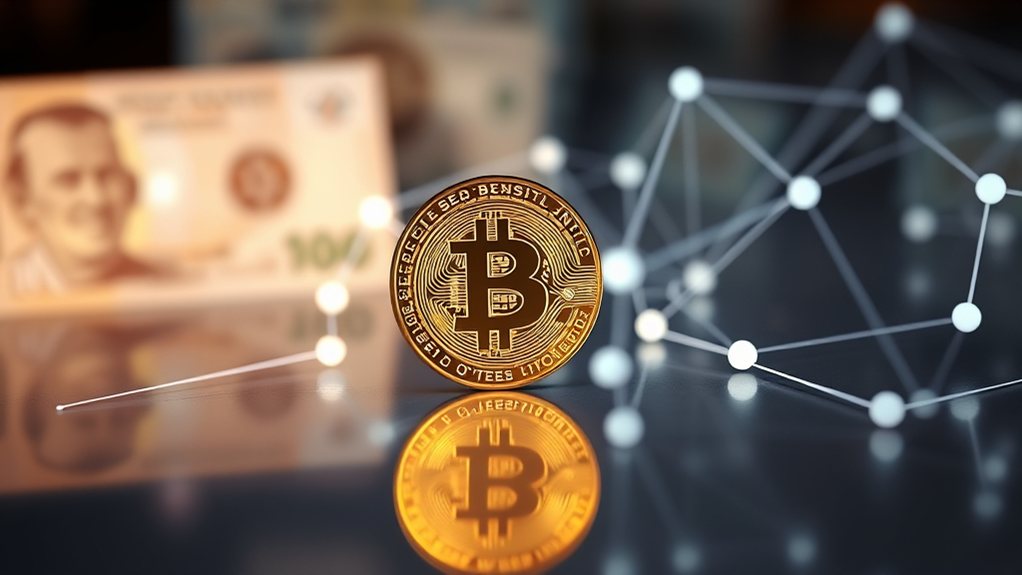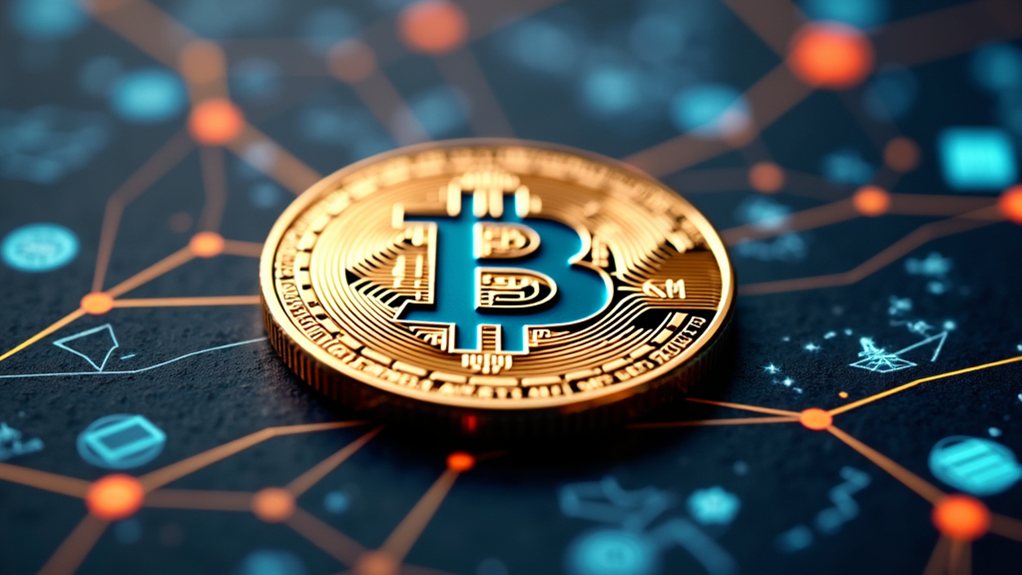Fungible tokens are digital assets on blockchain networks that can be exchanged on a one-to-one basis. Each token is identical to others of its kind, similar to how one dollar bill equals another. These tokens serve as cryptocurrencies, stablecoins, or utility tokens for accessing services. They're divisible, allowing fractional ownership, and use standards like ERC-20 on Ethereum. The technology continues evolving with increasing real-world asset integration and institutional adoption.

The backbone of digital economy, fungible tokens represent a revolutionary class of blockchain assets that function much like digital cash. These tokens are designed to be completely interchangeable and identical to one another, with each unit holding the same value as any other. When someone owns a fungible token, such as Bitcoin or an ERC-20 token on Ethereum, they possess something that's uniform and standardized across the entire ecosystem.
Fungible tokens follow specific technical standards depending on which blockchain they're built on. The most common standard is ERC-20 for Ethereum-based tokens, but others include BEP-20 for Binance Smart Chain, TRC-20 for TRON, and specific standards for EOS and Stellar networks. These protocols guarantee the tokens function consistently across different applications and services. The security of these tokens is maintained through complex encryption that protects each transaction while ensuring transparency for users.
Technical standards are the silent language of blockchain interoperability, ensuring tokens speak fluently across the digital ecosystem.
One key feature of fungible tokens is their divisibility. Users can split them into smaller fractions without losing value, similar to how a dollar can be divided into cents. This divisibility makes them practical for various transaction sizes. Their uniformity also enables smooth trading on exchanges, as there's no need to differentiate between individual units of the same token.
The uses for fungible tokens span multiple categories. They function as cryptocurrencies for payments, stablecoins pegged to traditional currencies, utility tokens for accessing services on platforms, governance tokens for voting in decentralized organizations, and as digital representations of traditional assets like stocks or commodities. Stablecoins in particular have emerged as critical components in the crypto ecosystem, offering price stability in contrast to the volatility typically associated with other cryptocurrencies. Unlike non-fungible tokens (NFTs), fungible tokens offer perfect exchangeability on a one-to-one basis, making them ideal for standardized financial transactions.
These tokens offer significant benefits to the financial world. They enable global value transfers without intermediaries, support programmable money through smart contracts, increase market liquidity, reduce transaction costs, and allow fractional ownership of expensive assets. This makes previously illiquid or exclusive investments more accessible to average people.
Despite their advantages, fungible tokens face several challenges. Regulatory frameworks are still developing in many countries, creating uncertainty for users and businesses. Some blockchain networks struggle with scalability issues when transaction volumes increase. Security concerns include potential smart contract vulnerabilities, and many tokens experience significant price volatility.
Looking ahead, fungible tokens are evolving rapidly. They're becoming integrated with decentralized finance protocols to create new financial services. Efforts to tokenize real-world assets like real estate and art continue to expand. Improvements in cross-chain compatibility are making tokens more useful across different blockchain networks.
Many projects are also enhancing privacy features while maintaining compliance with regulations. As mainstream financial institutions gradually embrace blockchain technology, fungible tokens are positioned to play an increasingly important role in the digital transformation of global finance and commerce.
Frequently Asked Questions
How Do Fungible Tokens Differ From Stablecoins?
Fungible tokens and stablecoins differ primarily in their price stability.
While all stablecoins are fungible tokens, not all fungible tokens are stablecoins. Fungible tokens like Bitcoin and Ethereum have values that change constantly.
Stablecoins, however, maintain steady values by being pegged to external assets like the US dollar. They're designed specifically to minimize price volatility, making them more reliable for everyday transactions.
What Security Risks Are Associated With Fungible Tokens?
Fungible tokens face numerous security challenges.
Hackers exploit smart contract vulnerabilities through reentrancy attacks and integer overflows. Users risk private key theft, phishing scams, and malware that targets crypto wallets.
Market manipulation occurs through pump-and-dump schemes and wash trading.
Technical risks include network congestion, 51% attacks, and coding errors.
Lost private keys often mean permanent token loss, while exchange hacks can result in widespread theft.
Can Fungible Tokens Be Used Offline?
Fungible tokens can be stored offline but can't be actively used without internet access.
Hardware wallets, paper wallets, and cold storage devices keep tokens secure offline. The tokens themselves remain on the blockchain, with only the access keys held offline.
To send or receive tokens, users must eventually connect to the internet to broadcast transactions and sync with the current blockchain state.
How Are Fungible Tokens Taxed in Different Jurisdictions?
Taxation of fungible tokens varies widely across jurisdictions.
The U.S. treats them as property subject to capital gains tax.
EU countries lack a unified approach, with some classifying tokens as financial instruments and others as intangible assets.
The UK applies Capital Gains Tax when tokens are disposed of.
Japan considers them miscellaneous income, taxing them at rates up to 55%.
Most countries require reporting crypto transactions on tax returns.
What Role Do Fungible Tokens Play in Decentralized Finance?
Fungible tokens serve as the backbone of decentralized finance (DeFi).
They're used to provide liquidity in trading pools, where users swap one token for another. These tokens also enable lending and borrowing, with assets serving as collateral.
In governance, they give holders voting rights on protocol changes. Additionally, they're essential for creating stablecoins and other financial products that make up the expanding DeFi ecosystem.














